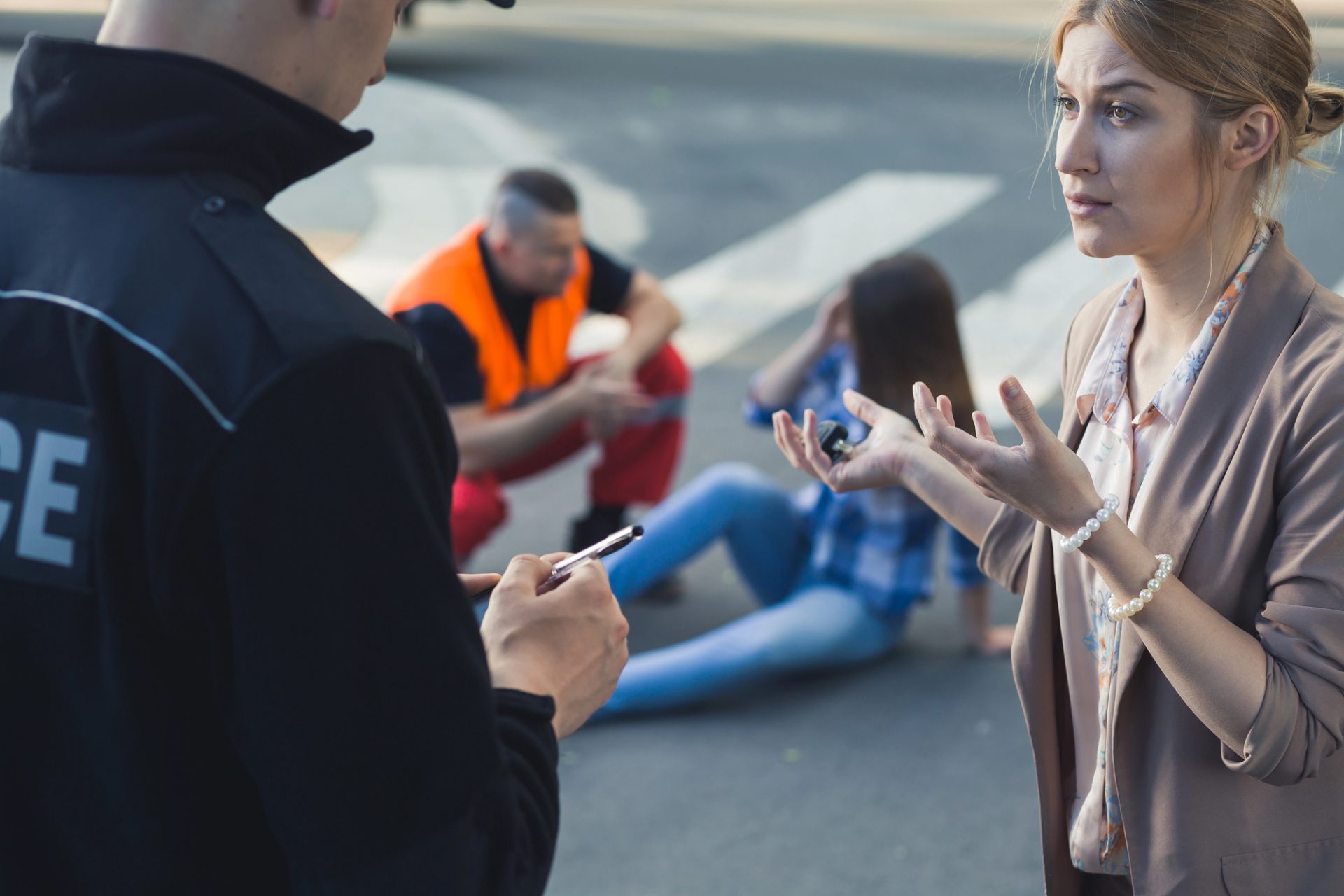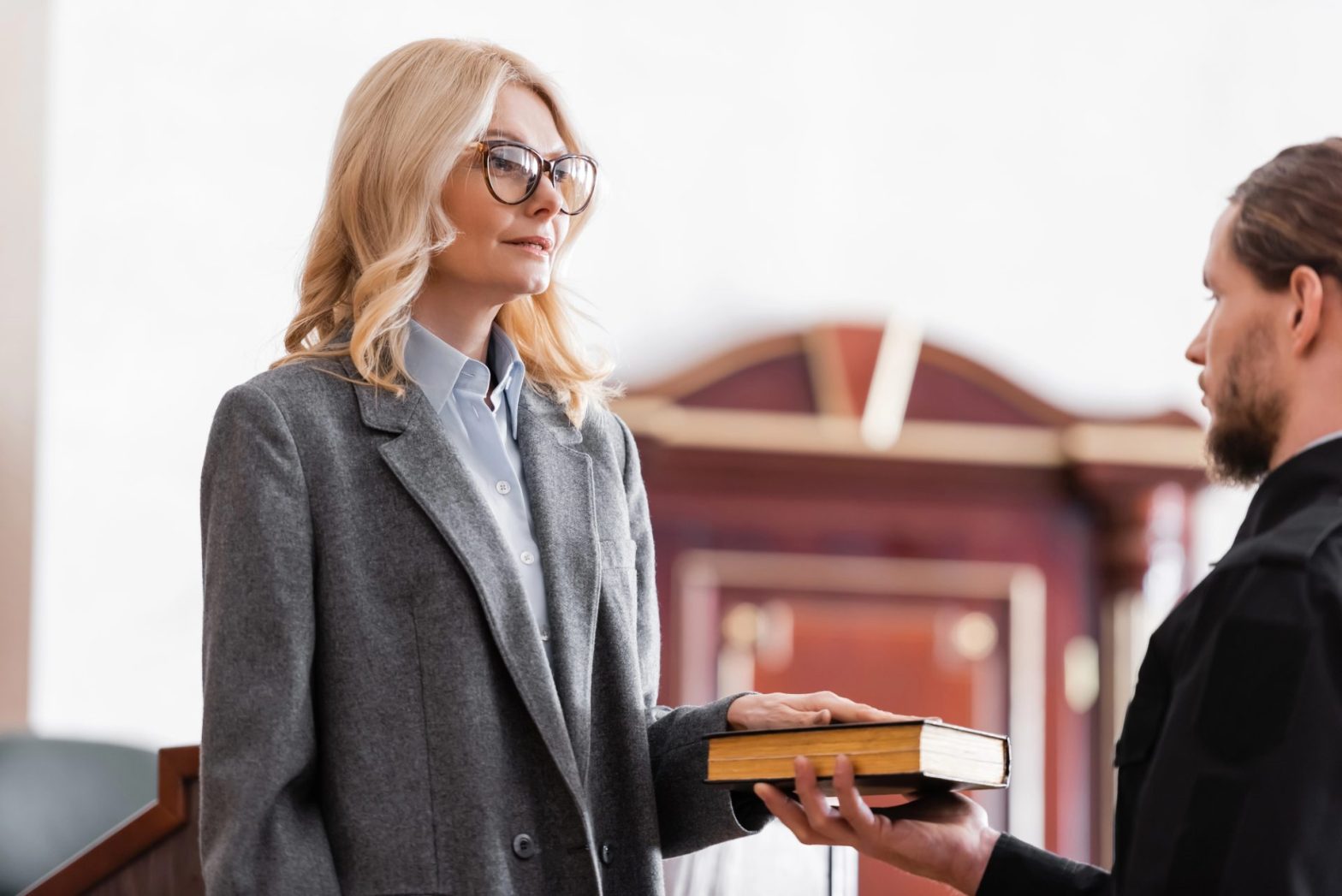Witness testimonies are crucial when it comes to establishing the facts of a personal injury case and supporting a victim’s claims. The insight they provide into the specific details of an accident or its aftermath can help corroborate what you have to say. This, in turn, can help strengthen your case. So, what is the role of witnesses in personal injury cases?
Importance of Witnesses in a Personal Injury Case
If you’re filing a personal injury claim or lawsuit, having witnesses can improve the odds of getting a favorable result substantially. This is because witnesses provide clarity on what occurred during an accident, often confirming that the injuries a victim suffered are a direct consequence of the accident.
In several instances, witnesses also help counter claims that defense lawyers make to pin part or all the blame on victims. For example, if a reckless driver injured you in a car accident while you were legally crossing a street, and the defense attorney is trying to hold you liable by saying you were jaywalking, a witness who saw the accident occur can testify that your version of events is correct.
Witnesses in a personal injury litigation case tend to serve a few distinct purposes.
- Corroborating. Witnesses can corroborate your version of what happened leading up to and after an accident, while also providing additional relevant details.
- Building credibility. Courts view witness testimonies as objective and impartial accounts of accidents, which is why they help add credibility to your case. However, the credibility of witnesses might matter as well.
- Pinning liability. Often, witnesses play a crucial role in establishing who is responsible for causing an accident by describing what they saw, heard, and experienced.
Given that defense lawyers try to undermine the opposing parties’ witness statements, witnesses need to ensure that they address any questions thrown at them directly and without hesitation. In addition, when multiple witnesses provide consistent statements, it makes it more challenging for the opposing party in a personal injury lawsuit to counter a victim’s claim.
Who Testifies in a Personal Injury Case?
Testimonies in personal injury cases can come from three types of witnesses that include eyewitnesses, expert witnesses, and character witnesses. It is common for personal injury lawyers to use all three to help bolster their cases.
Eyewitnesses
Eyewitnesses or lay witnesses are people who watched the events leading up to and immediately after an accident. They describe what they saw, heard, and experienced at the scene in as detailed a manner as possible. Eyewitness testimony may come from coworkers, bystanders, friends, family members, co-passengers, and anyone else who witnesses an accident.
If you witness an accident, know your cooperation is crucial. In any such scenario, you should ideally:
- Remain at the scene.
- Take photos or videos of the scene.
- Try to help those injured.
- Provide your statement neutrally, honestly, and accurately.

Expert Witnesses
Expert witnesses are people who specialize in different fields, and personal injury lawyers tend to partner with them to get their insight into various matters.
- Medical experts. Medical experts may include doctors, surgeons, and nurses. They help highlight the nature and severity of your injuries, the prescribed treatment, as well as the short- and long-term effects you might suffer. Their testimonies establish a crucial link between an accident and the resultant injuries.
- Mental health experts. When personal injury victims suffer from psychological trauma or pain and suffering, mental health experts can shed light on the impact the accident has created on their mental well-being. Their testimonies can play a vital role in establishing non-economic damages like emotional distress, loss of consortium, and loss of enjoyment of life.
- Financial experts. Financial analysts and economists analyze the financial impact of a victim’s injuries by covering aspects like treatment costs, lost wages, and the loss of future earning potential. Their assessment helps put a number on victims’ economic damages, ensuring they receive adequate compensation.
- Accident reconstruction specialists. Accident reconstruction specialists examine physical evidence from accident scenes thoroughly, including damage to vehicles, impact points, skid marks, and positions of vehicles. By reconstructing the chain of events that led to an accident, they are able to determine the cause and establish who was at fault. The use of computer simulations is also common in this realm.
Character Witnesses
Character witnesses testify about an injured person’s life before and after an accident, and their testimonies can be particularly beneficial in cases where victims suffer from mental trauma or possible long-term implications. Character witnesses can include friends, family members, employers, coworkers, or prominent community members.
The Role of Expert Witnesses in Personal Injury Cases
Expert witnesses are responsible for providing objective and credible evidence along with informed opinions to support an accident victim’s claims, and they can help strengthen your case in different ways.
- Increasing credibility. Since expert witness testimonies are evidence-backed and provide an objective view of your case, they help increase the credibility of your claims.
- Proving causation. Proving causation is typically the most challenging part of a personal injury claim, and expert witnesses help establish clear links between accidents and the injuries they cause.
- Calculating damages. Personal injury lawyers commonly collaborate with expert witnesses to quantify the economic and non-economic damages that their clients might suffer.
- Simplifying complicated topics. While expert witnesses rely on specialized knowledge, scientific principles, in-depth research, and technical concepts, it is upon them to simplify complex topics and present their testimonies in a manner that makes them easy to understand.
Collecting Witness Testimonies
Given the role of witnesses in personal injury cases, getting a personal injury lawyer to handle your case ensures that all their testimonies are accurate. Besides, your attorney can help you in other ways.
- Identifying witnesses. Your attorney can identify and track down eyewitnesses who were present at the time and scene of the accident. Selecting expert and character witnesses might also be part of the parcel.
- Conducting interviews. Interviewing witnesses and gathering detailed information about the accident is crucial in understanding the chain of events that caused the accident.
- Documenting statements. Your attorney will document witness statements through depositions, recorded interviews, or written statements and retain all the information required for your case.
Keep in mind that gathering witness statements on your own might not be the best way forward because doing so requires paying attention to various legalities. Since defense attorneys can try to rattle your witnesses to weaken your case, it might be necessary to prepare them accordingly. Besides, your case might also benefit from using testimonies from expert witnesses, and your attorney will know which path to take.
Conclusion
Now that you know the role of witnesses in personal injury claims, remember that their testimonies can be crucial in deciding the course your case takes. However, witnesses extend beyond the people who are present at the scene of an accident, and you might also benefit from the insight provided by different expert witnesses. Given that identifying witnesses, collecting their testimonies, and presenting them in the right way is crucial for success, partnering with a personal injury law firm is typically the ideal way to go.

